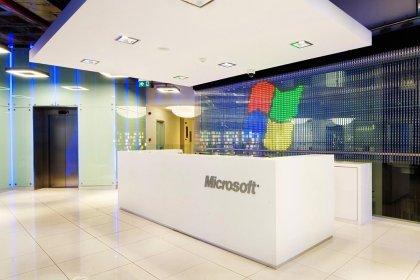In the framework of cooperation with Microsoft Israel’s Bank Hapoalim seeks to digitize paper-based process of creating bank guarantees by using blockchain techs.
Israel’s Largest Bank Hapoalim teams up with software giant Microsoft to develop a platform to create digital bank guarantees based on blockchain technology, a leading global software platform for digital assets, according to the Wednesday’s announcement.
A bank guarantee is a guarantee from a bank that ensures that a debtor’s liabilities will be covered by the issuing bank. They enable customers to buy goods or equipment backed by the guarantee from the bank.
This cooperation makes Bank Hapolim the first bank in Israel to explore blockchain potential in the area of financial market infrastructures.
Currently clients of Bank Hapolim, who require a bank guarantee, need to find time and physically visit a branch, transfer the guarantee to the beneficiary, and return it in case it is not used. By digitizing the largely paper-based process, the new blockchain solution will help the bank simplify the process of signing up guarantors, making it a lot quicker as well.
The new process, according to the Hapoalim’s Chief Executive Officer Arik Pinto, would enable Bank Hapoalim customers to receive security documents in a digital, automated and secure manner, without physically coming to the branch and in a very short process. He also thinks that the use of Blockchain technology would significantly improve the customer experience and the level of trust in the banking system.
Shelly Landsmann, CEO of Microsoft Israel, commented the joint pioneering move by the software giant and Israeli bank:
This is the first collaboration of its kind in Israel in the banking sector that will enable a digital revolution, access to advanced services and the combination of technology and business needs. Microsoft is currently supporting a large number of Blockchain technologies that enable the deployment of different types of networks, depending on the system and the business needs, on the Azure cloud platform.
Apart from cooperation with Microsoft, Bank Hapoalim is working with the Bank of Israel and other entities in the framework of a joint effort to modernize regulatory requirements which will allow for the integration of the latest technologies.
Meanwhile, Microsoft is working on a new tool, using its Azure cloud platform, to test the functionality of applications that will be based on the blockchain technology.
To recap, early last month Microsoft unveiled Coco Framework (stands for Confidential Consortium), an open-source blockchain framework believed to address the problems, which frequently face enterprises who want and ready to adopt blockchain technology for smart contracts and other use cases. These issues include mainly throughput, latency, governance and confidentiality.
Planned adopters include Corda, the blockchain of bank consortium R3, Intel’s blockchain Sawtooth and Quorum, the blockchain developed by JPMorgan Chase & Co.
Coco’s source code will be available to the open source community in 2018.
next